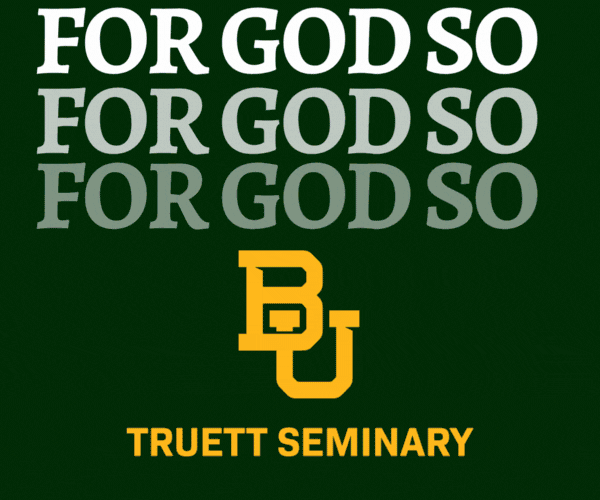It’s a misconception Russians worship a strong central government and have no place for freedom of conscience or religious freedom in their history, historian Wallace Daniel said.
“It doesn’t hold true to the reality,” Daniel asserted.
Daniel is distinguished professor of history at Mercer University and emeritus professor of history at Baylor University. He introduced his latest publication, Freedom and the Captive Mind: Fr. Gleb Yakunin and Orthodox Christianity in Soviet Russia as part of the Baylor Libraries Author Series.
Daniel’s lecture, titled, “Speaking Truth to Power: The Revolt of a Russian Priest,” countered the “widespread view that the Russia people are essentially authoritarian by nature.”
Rather, if one looks closely at Russian history, many examples of nonconformists, dissidents and “of people who do not agree with the state” will be found, Daniel said.
As evidence that “the belief dissidents and nonconformists don’t exist among Russians” is a “western construct,” Daniel cited dissenting Baptists.
He also pointed to “a famous group called the Old Believers, or many of the most violent peasant rebellions in modern European history that attempted, and almost did on several occasions, overthrow the state,” and other writers and thinkers who went up against the state in Russia’s past.
“One of the most courageous and one of the most outstanding of those nonconformists, those dissidents” is Father Gleb Yakunin, Daniel claimed.
“Father Gleb fought for freedom of conscience in some of the most difficult conditions that one can imagine, through some of the darkest years of Soviet Russia in its history,” he said.
Sign up for our weekly edition and get all our headlines in your inbox on Thursdays
When Vladimir Lenin came to power, he decreed war on religion, “the belief of the naïve,” Daniel explained, and saw it as something that must be overcome in order to create a scientific, industrial civilization.
To overcome Christianity, Lenin believed it must be attacked from all sides, externally but also from within the religious tradition, Daniel said, setting the backdrop for his talk on Yakunin.
Yukunin finds his way to faith
Yakunin’s father died when he was 9 years old. His mother, a bookkeeper who was devout in the Russian Orthodox faith, raised him in a house filled with candles and religious icons.
However, schools were atheistic and required students to take classes in atheism. At the age of 14, “Yakunin declared himself to be an avowed atheist,” who would never change.
“But he did change,” Daniel noted, through a relationship he developed in university with Alexander Men, a man whose witness and friendship would “reshape his life.”
The two bonded over books, the sciences and world religions. Before Men and Yakunin became friends, he was already on the road to becoming a Christian or had at least developed an interest in the religion, Daniel recalled Yakunin telling him.

But, “Men convinced Yakunin that there was a much deeper and more interesting world than he’d been exposed to in his schooling,” Daniel said.
Additionally, Yakunin sought out banned books in Moscow’s bookstores and was especially interested in Eastern religions. “He was a rebel,” a nonconformist, who came to believe the Bolshevik requirement to worship a strong leader was wrong.
“I was a born fighter,” Daniel recalled Yakunin saying. And he chose a fighting vocation, when he was ordained to the Russian Orthodox priesthood in the 1960s at age 26, Daniel said.
Yakunin gained worldwide attention for being a dissenting voice from within the Russian church and for letters he wrote about religious persecution asking global Christians to come to the aid of Christians who were suffering.
Daniel explained it was astounding to Westerners of the time that such a letter was coming out of the Soviet Union.
Then, in 1976, Yakunin held a press conference in Moscow, with Western and Soviet journalists in attendance, where he announced the creation of a “Christian committee for the defense of believers’ rights in the Soviet Union.”
“‘Our purpose,’ he said, in that committee, ‘was to collect stories of priests and stories, also, of believers who were being persecuted,’” Daniel quoted Yakunin.
The stories were sent to an entrepreneur in San Francisco who published them in 12 volumes, nine of which are housed in the Keston collection in Carroll Library at Baylor University.
Confronting truth and telling it
Yakunin confronted, with facts, the Soviet Union lie that there was no religious persecution happening, and he had “no fear” of confronting the hierarchy of the church or the government or of violating the Soviet Constitution.
He knew doing so was dangerous and he might pay a heavy price, but he “spoke truth to power” anyway, Daniel said.
Yakunin believed “wholeheartedly” in freedom of conscience, “that it was a person’s right to believe or not to believe.”
He also said, “When Christianity and nationalism become entwined with each other, when the mind becomes captive to power, the person, and a whole society will lose their way,” Daniel noted.
Yakunin uncovered and made public corruption and duplicity at the highest levels of his country.
Daniel explained Yakunin saw speaking the truth as his Christian calling. He said a society should not be afraid to look at every part of its history and bring it out. It must do so to be healthy.
Yakunin believed, “Truth, not duplicity nor fantasy, would cleanse us.”
“That statement is as relevant to Putin’s Russia today as it was when Yakunin wrote these words. It is also relevant to our own country—to healing its wounds, to bringing us together again as a people,” Daniel concluded.
The Keston Center for Religion, Politics and Society was established by Baylor University to receive, maintain, preserve, expand and make available to scholars the Keston Archives and Library—the world’s most comprehensive collection of materials on freedom of conscience and religious persecution under communist and other totalitarian regimes.
The Keston collection, originally located at Keston College in Oxford, arrived in Waco in 2007. The Keston Center became part of the Baylor Libraries in 2012.
















We seek to connect God’s story and God’s people around the world. To learn more about God’s story, click here.
Send comments and feedback to Eric Black, our editor. For comments to be published, please specify “letter to the editor.” Maximum length for publication is 300 words.